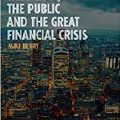I was writing to potential clients when I realized that I don’t have so much to write about my bond track record as I do my track record with stocks. I jotted down a note to formalize what I say about my bond portfolios.
One person I was writing to asked some detailed questions, and I told him that the stock market was likely to return about 4.5{01de1f41f0433b1b992b12aafb3b1fe281a5c9ee7cd5232385403e933e277ce6}/yr (not adjusted for inflation) over the next ten years. The model I use is the same one as this one used by pseudonymous Philosophical Economist. I don’t always agree with him, but he’s a bright guy, what can I say? That’s not a very high return — the historical average is around 9.5{01de1f41f0433b1b992b12aafb3b1fe281a5c9ee7cd5232385403e933e277ce6}. The market is in the 85th-90th percentiles of valuation, which is pretty high. That said, I am not taking any defensive action yet.
Yet.
But then it hit me. The yield on my bond portfolio is around 4.5{01de1f41f0433b1b992b12aafb3b1fe281a5c9ee7cd5232385403e933e277ce6} also. Now, it’s not a riskless bond portfolio, as you can tell by the yield. I’m no longer running the portfolio described in Fire and Ice. I sold the long Treasuries about 30 basis points ago. Right now, I am only running the Credit sensitive portion of the portfolio, with a bit of foreign bonds mixed in.
Why am I doing this? I think it has a good balance of risks. Remember that there is no such thing as generic risk. There are many risks. At this point this portfolio has a decent amount of credit risk, some foreign exchange risk, and is low in interest rate risk. The duration of the portfolio is less than 2, so I am not concerned about rising rates, should the FOMC ever do such a thing as raise rates. (Who knows? The economy might actually grow faster if they did that. Savers will eventually spend more.)
But 10 years is a long time for a bond portfolio with a duration of less than 2 years. I’m clipping coupons in the short run, running credit risk while I don’t see any major credit risks on the horizon aside from weak sovereigns (think the PIIGS), student loans, and weak junk (ratings starting with a “C”). The risks on bank loans are possibly overdone here, even with weakened covenants. Aside from that, if we really do see a lot of credit risk crop up, stocks will get hit a lot harder than this portfolio. Dollar weakness and US inflation (should we see any) would also not be a risk.
I’ve set a kind of a mental stop loss at losing 5{01de1f41f0433b1b992b12aafb3b1fe281a5c9ee7cd5232385403e933e277ce6} of portfolio value. Bad credit is the only significant factor that could harm the portfolio. If credit problems got that bad, it would be time to exit because credit problems come in bundles, not dribs and drabs.
I’m not doing it yet, but it is tempting to reposition some of my IRA assets presently in stocks into the bond strategy. I’m not sure I would lose that much in terms of profit potential, and it would increase the overall safety of the portfolio.
I’ll keep you posted. That is, after I would tell my clients what I am doing, and give them a chance to act, should they want to.
Finally, do you have a different opinion? You can email me, or, you can share it with all of the readers in the comments. Please do.
SOURCE: The Aleph Blog – Read entire story here.

